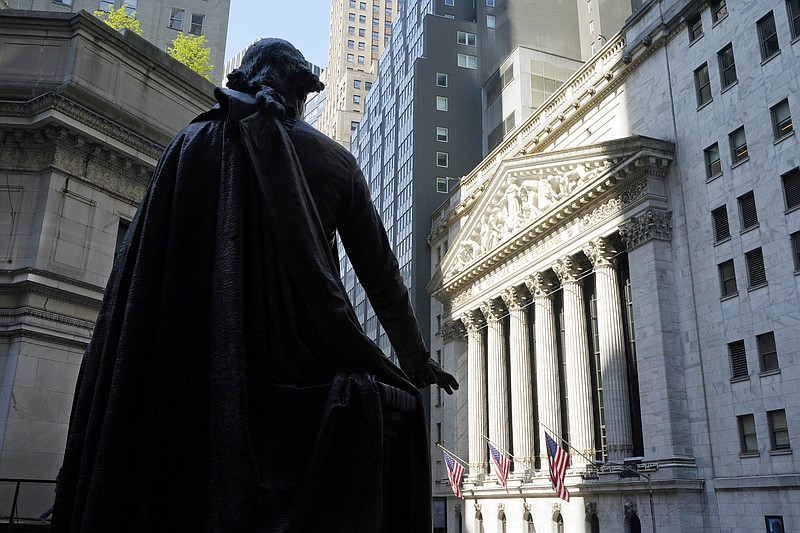U.S. stock indexes meandered to another uneven finish Tuesday, spending much of the day swaying between small gains and losses. The modest moves reflect a wait-and-see attitude among investors amid a light week of earnings and new economic data, though some corners of the market -- cryptocurrencies and some social media-hyped stocks -- kept traders busy.
The S&P 500 inched up less than 0.1% after earlier veering between a loss of 0.4% and a gain of 0.2%. The benchmark index has barely moved the past two days after notching two straight weekly gains. The Dow Jones Industrial Average slipped 0.1%, while the Nasdaq mustered a 0.3% gain. Smaller-company stocks once again outpaced the broader market.
The S&P 500 remains close to its record high set May 7, but it has not been able to climb higher.
"We haven't moved materially lower, probably because right now there aren't a lot of catalysts to move the market one way or the other," said Tom Hainlin, national investment strategist at U.S. Bank Wealth Management.
The S&P 500 added 0.74 points, to 4,227.26. The Dow slipped 30.42 points, to 34,599.82. The Nasdaq gained 43.19 points, to 13,924.91. The Russell 2000 index of smaller companies rose 24.58 points, or 1.1%, to 2,343.76.
A variety of companies that rely on direct consumer spending made solid gains. Domino's Pizza rose 1.2%, and Gap gained 2.9%. Industrial stocks also ticked higher. Energy companies rose along with the price of crude oil.
Those gains were kept in check by falling health care and communication stocks. Banks also fell, weighed down as bond yields slipped. The yield on the 10-year Treasury fell to 1.54% from 1.57% late Monday.
Elsewhere in the market, Wendy's jumped 25.9% as it seemingly joined a list of companies that have gained the attention of individual investors taking their cues from social media forums. Clover Health Investments soared 85.8%. Other companies that have seen their stock values soar and fall sporadically include AMC Entertainment, Blackberry and GameStop.
Cryptocurrency traders appeared to be in a selling mood. Bitcoin and other popular digital currencies, including Ethereum and Dogecoin, all fell sharply, according to Coindesk. Bitcoin, which climbed above $60,000 early this year, slid 7% to $32,690.
The stock of Fastly, an internet cloud services provider, climbed 10.8% after the company said it had addressed an internal problem that caused dozens of websites around the globe to go down briefly, including the home page of Britain's government and The New York Times.
Investors have been navigating a choppy market as they digest information on how the economy is recovering. The World Bank upgraded its outlook for global growth this year, predicting that covid-19 vaccinations and government stimulus in rich countries will power the fastest worldwide expansion in nearly five decades.
The 189-country anti-poverty agency forecasts that the world economy will grow 5.6% this year, up from the 4.1% it forecast in January. The global economy last year shrank 3.5%.
The upbeat forecasts for growth and greater demand from consumers have raised concerns about rising inflation. Investors have been trying to gauge whether the increase will be temporary and tied to the recovery or will run hot and become a more permanent fixture of the post-pandemic economy. The path of inflation could determine whether central banks continue to generously support economies or pull back.
The economy is still being distorted by the pandemic shutdowns and their aftermath. Factories are still ramping up production, but not quickly enough to meet demand for a variety of goods as people move past the pandemic. That has resulted in rising prices for items such as food and household staples.
"Right now it's just too many consumers taking too few goods," said Megan Horneman, director of portfolio strategy at Verdence Capital Advisors.
